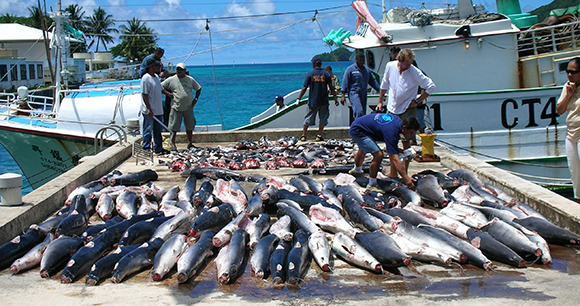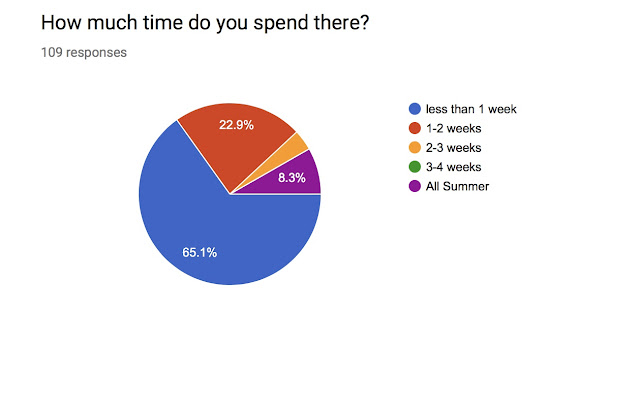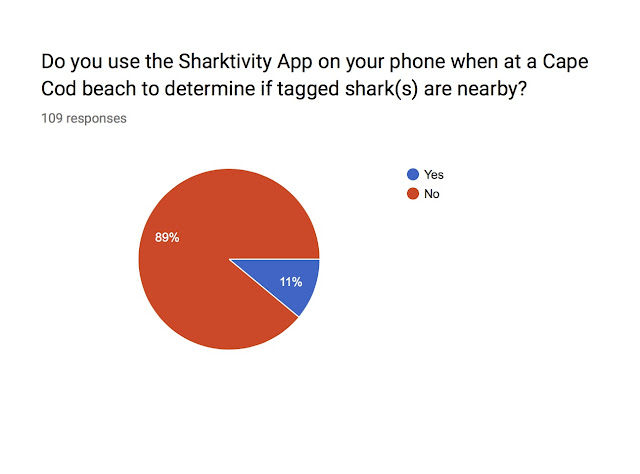Last week I had the distinct opportunity to interview Brian Skerry. Brian has been working for National Geographic Magazine for the past 20 years, documenting his diving experiences through photographs that have told a story over the years as to how our ocean's have changed. His photographs have been so effective to the point where lawmakers have even implemented regulations on human activity that has caused disturbance among marine life. It's been said that the most effective way to tell stories is through images. Brian Skerry's photos are socially responsible and illuminate conservation plights of marine animals and their environment. His photography invokes an emotional impact whether it is the decimation of the harp seals survival of St. Lawrence, the decrease in worlds fisheries, or the need for conservation protection of marine parks to preserve the natural ecosystems. Our mutual fascination with predatory sharks and his experience is where my interview begins.
Skerry has been photographing Great White Sharks off the Coast of Cape Cod for the last 7 years. Skerry has been working alongside the Atlantic Great White shark conservancy to test out shark behavior. During our 45 minute interview I got his insights on how this issue is being dealt with, as well as what he sees for the future of these sharks.
 |
| Great White attack on a dummy seal fitted with camera technology. Photo by Brian Skerry |
A teenager when Jaws was released, I wanted to learn if and how Skerry was affected by the portrayal of sharks in this film. Did he believe that this was where the wrongful misconception of sharks began? Skerry explained that it actually didn't make him fear sharks like it did most people, but rather inspire him to want to dive with sharks. He even befriended Peter Benchley in later years, and got to learn about what his inspiration was for the story. He accounted that Benchley never envisioned that this film would cast such a great deal of fear amongst the public, and feels his movie 'demonized' sharks. Skerry felt that this film wasn't the central cause for fear of sharks, as there have been plenty of cases in the media going all the way back to the 50's and 60's where sharks have always been the bad guys.
Having spent the last 15 summers vacationing on the Cape, I have noticed that the increase in shark population over the years has established the Cape as the "home of the Great White". Skerry has been researching these animals since they've emerged within the last decade, and I was curious of his opinion, whether is has been a positive or negative influence on the tourism aspect of the Cape. He stated that he hadn't visited every part of the Cape so he couldn't speak on behalf of all its residents. But for the parts of the Cape that he has visited, such as Chatham, he has noticed certain businesses embrace these sharks through merchandise, company logos, bumper stickers, etc. So he feels as though the way in which people embrace this surge of sharks all comes down to whether they fear them or not, which brings me to my next question.
I had read a lot of articles regarding the recent shark fatality on the Cape last September, and how it left people debating over what motives should be done as a result. I had the feeling that the majority of local residents would respond to this in a negative way by calling for both sharks and seals to be culled. But much to my surprise, Skerry feels as though most people would respond otherwise. From the efforts Skerry has witnessed by beachgoers to help return sharks back to the ocean after being washed up on shore, it is evidence that they want to help these animals. "It's a testament to those who understand the importance of sharks". Skerry said. Although, he feels that economically, this attack could hurt businesses in a way. And this is probably one of the reasons why some people, including town selectmen, have been calling for the culling of these animals. And although this isn't the right answer, Skerry believes that it will be hard to convince people to change their minds, because there will always be two different sides to a situation. He knows that this will always be a public safety issue, so its important that we take extra precautions.
As far as the types of precautions that people are taking, I asked him about how he felt about the ideas of shark netting being implemented in certain beaches around the area. It turns out he felt the same way I did about these being installed. "They have the right intentions, but given their outcomes, they seem a bit vague". Skerry noted. He even had his own ideas for how we should go about these precautions, with methods such as aerial drone footage, shark repellants for divers, and just about any method that doesn't involve harming the animals.
I decided to go a bit more in depth with my next question wanting to learn what the reason as to why these sharks are coming here in the first place. I mentioned how Dr. Greg Skomal made some unique discoveries from the end results of his 5-year research study. He found that some sharks have tended to stick around the area longer before they migrate south for the winter. I asked Skerry if felt that climate change had anything to do with this. He responded "Climate change doesn't seem to be the central reason for the change in shark migratory patterns, it still is a possible factor for why the sharks tend to stick around longer in our cold waters". According to Skerry there are a number of different factors. In his opinion, part of the reason why Great Whites are seemingly able to tolerate these colder temperatures is because of the fact that they prefer a specific temperature. But from some of the results he's noticed in his research, it doesn't quite add up. Skerry and Skomal were informed about a shark they tagged was detected by satellite ping in the northern waters of Europe in the Flemish region. This was in February! Considered to be unusual for these animals, it proves there is much to learn about Great Whites.
 |
| Biologist Greg Skomal tries to record video of a White Shark on Cape Cod. Photo by Brian Skerry |
Skerry has used photography to raise awareness and tell the stories surrounding important marine conservation issues. I was curious as to how effective they have been regarding policy and politics. Did his photographs help opened minds, and invoke change in any way. Skerry went on to share the story of when he presented one of his photographs to the Northern Oceanic and Atmospheric Association (NOAA) which featured a Right Whale dying from being struck by a ship. This photograph had the astonishing effect to move NOAA to pass regulations that slows down shipping traffic in the northern waters, which would reduce collision with whales. The power of a photograph! Skerry's photographs have influenced around the world about endangered species, and lead to the creation of national conservation parks in many countries. I was curious whether these photographs are still as effective with President Trump's administration as they were during the Bush and Obama administrations. He said there's no question that they were much more effective in the previous administrations. He noted the fact that there's never been such an attack on our environment before. Trump is currently undoing all of these environmental policies that we've worked so hard to enforce. Now promoting the drilling of coal and oil, and reversing the Wetlands and Clean Water Act. That's where he said we always go wrong. We don't worry about what's going to happen in the long run, and we always get worried about how much money we're spending. It all comes down to us electing our leaders, which in this case have no interest in the well-being of our people, putting themselves ahead of us. He feels as though the only solution to this is to work harder at getting the message out to the public. When you present these powerful images to people, it's important that we include solutions to these problems being displayed, something that will motivate others to push for environmental conservation. If we can accomplish that, then there's definitely some hope in the future for the stability of our ecosystem.
I wanted to know what Skerry believed is in critical need of attention, given the current health of our oceans. Skerry answered "The best solution at this point is to create more Marine Protected Areas in places that need it desperately". Noting the vast majority of the public is unaware of just how essential the ocean is in our lives. We live on a planet that is 75% composed of ocean, have a biosphere that is 98% ocean. The problem is, only 3% of the ocean is actually protected. This leaves a the majority of it vulnerable to the threats of human activities.
As for the Atlantic Great White Sharks of Cape Cod, Skerry makes it clear that these predators are pertinent to the health of the entire ecosystem. They are important to protect in order to maintain a healthy predator-prey balance. Through his underwater and above photographs and working with marine biologists and conservationists throughout the Northeast, Skerry is working tirelessly to educated on the importance of preserving our marine wildlife and it's ecosystem.
It was a honor speaking in depth with Brian Skerry and I am grateful for the time he took to answer my questions. You can find out more about Brian Skerry at www.brianskerry.com
























